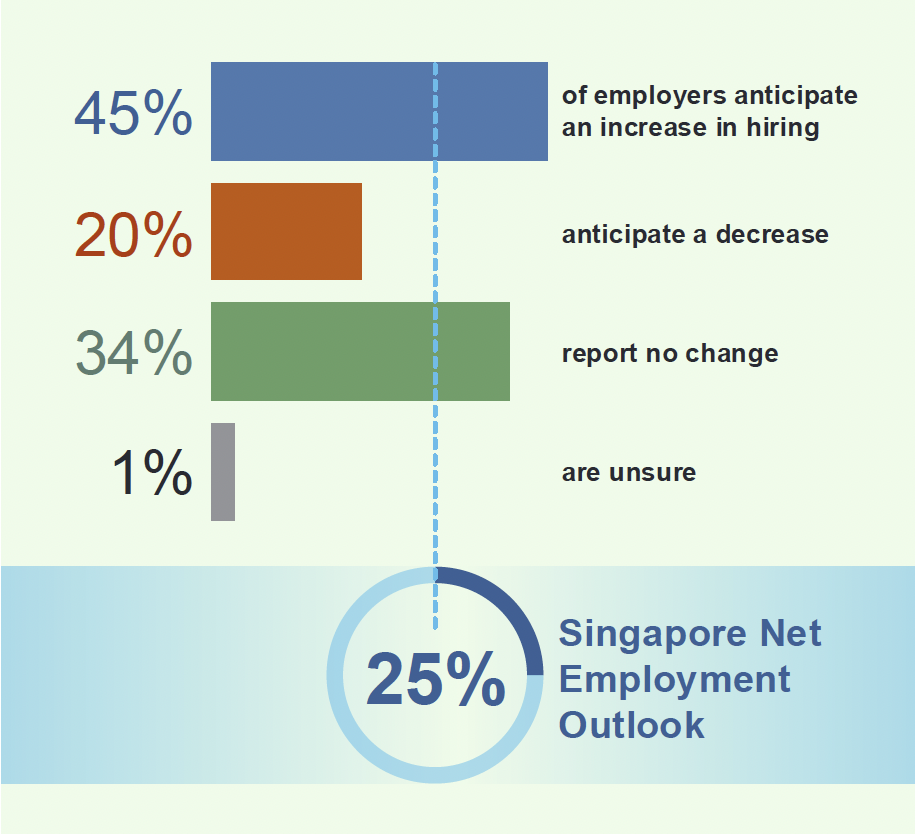Want To Know More About Our Company?
Curious What Else We Do?
Wecruit Pte Ltd (“Wecruit”) was incorporated with the idea that employment is an intimate process of human interaction.
Singapore’s tech industry continues to thrive, even as advancements in AI and digital transformation reshape the global economy.
Amid this rapid growth, certain IT roles—such as software engineers, software development engineers, and data engineers—remain in high demand. The recently updated Shortage Occupation List (SOL) by the Ministry of Manpower highlights these roles, reflecting a persistent talent gap.
With no signs of this talent shortage easing, this demand creates excellent opportunities for job seekers to build rewarding careers in one of Asia’s top tech hubs.

Whether you’re a fresh graduate, a mid-career professional transitioning into tech, or a foreigner exploring Singapore’s vibrant job market, this guide offers actionable steps on how to become a software engineer and thrive in the industry.
Before diving into the steps, it’s essential to understand what a software engineer does.
A software engineer is responsible for designing, developing, testing, and maintaining software applications. They collaborate with teams to solve complex problems, write clean code, and ensure that systems are efficient and scalable. Depending on the industry and specialisation, software engineers may work on mobile apps, web platforms, enterprise software, or embedded systems.
Key responsibilities include:
In Singapore, software engineers play a pivotal role in industries such as finance, e-commerce, logistics, and healthcare.
Not everyone is naturally inclined toward software engineering, but many skills can be developed with the right mindset and practice. Ask yourself:
If the answer is yes, software engineering could be a great fit for you.
Software engineering is a skills-driven profession. Here are the essential technical and soft skills you need to develop:
Programming Languages
Python, Java, CC++, or JavaScript.
Problem-Solving
The ability to analyse a problem, break it into smaller parts, and create effective solutions.
Data Structures and Algorithms
Understanding how data is stored, accessed, and manipulated. Start with topics like arrays, linked lists, and binary trees.
Teamwork
Software engineering is rarely a solo effort, so collaboration and communication are critical.
Version Control
Familiarise yourself with tools like Git and platforms like GitHub
Adaptability
Technology evolves quickly, and staying current with new tools and frameworks is essential.
Databases
Learn how to interact with relational databases (e.g., MySQL, PostgreSQL) and non-relational databases (e.g., MongoDB).
Time Management
Being able to prioritise tasks and manage deadlines effectively.
Web Development
Basic knowledge of HTML, CSS, and JavaScript frameworks like React or Angular is invaluable.
x
DevOps
Learn the basics of deploying and maintaining applications using tools like Docker, Kubernetes, and CI/CD pipelines.
x
Cloud Computing
Understand cloud platforms like AWS, Azure, and Google Cloud.

There are multiple ways to acquire the skills needed to become a software engineer in Singapore. Here are the most common:
A software engineer degree or a degree in computer science of information technology is the most conventional route. Universities in Singapore, such as the National University of Singapore (NUS) and Nanyang Technological University (NTU), offer top-tier programs in computer science and related fields.
Coding bootcamps are an excellent option for those looking to switch careers or gain skills quickly. Popular bootcamps in Singapore include:
Many successful software engineers are self-taught. Online platforms like Coursera, Udemy, and Codecademy offer affordable programming and software engineer courses in Singapore. Free resources include:
Practical experience is just as important as theoretical knowledge. Here are ways to build your portfolio:
Start with simple projects like a personal website or a to-do app. As you gain confidence, work on more complex projects, such as:
Collaborating on open source projects on platforms like GitHub helps you gain real-world experience and showcase your skills to potential employers.
Apply for internships with tech companies or startups in Singapore. Internships provide hands-on experience and valuable networking opportunities.
Platforms like Upwork and Fiverr allow you to take on small freelance projects to build your portfolio and earn while learning.

Networking is a powerful tool for career advancement. Here’s how you can build connections in the software engineering community:
Singapore’s vibrant tech ecosystem hosts numerous meetups and events. Platforms like Meetup.com and Eventbrite list events for software developers.
Participate in local developer forums, Reddit communities (e.g., r/singapore), or LinkedIn groups related to software engineering.
Participate in local developer forums, Reddit communities (e.g., r/singapore), or LinkedIn groups related to software engineering.
Customise your cover letter for each job application. Explain why you’re passionate about software engineering and how you can contribute to the company.
Technical interviews often include coding challenges and system design questions. Platforms like LeetCode, HackerRank, and Pramp can help you prepare.
Once you’re equipped with the right skills and experience, explore job opportunities on platforms like:
Popular entry-level roles include:
Companies hiring software engineers in Singapore include tech giants like Google, Facebook, and Grab, as well as numerous startups.
Technology is constantly evolving, and staying relevant is key to a successful career in software engineering. Here’s how to continue learning:
Earn certifications like AWS Certified Developer, Google Cloud Professional Developer, or Microsoft Certified: Azure Developer.
Learn new technologies like artificial intelligence, blockchain, or cybersecurity.
Consider pursuing a master’s degree in software engineering or a related field for advanced career opportunities.
Becoming a software engineer in Singapore requires dedication, continuous learning, and a proactive approach. By acquiring the right skills, gaining practical experience, and leveraging networking opportunities, you can position yourself for a rewarding career in this dynamic field. The demand for software engineers is only set to grow, making now the perfect time to embark on your journey.
The average salary for a software engineer in Singapore can range from SGD 4,000 to SGD 8,000 per month for entry to mid-level positions. Senior engineers can earn upwards of SGD 10,000, depending on the company and expertise.
1. Understand Singapore’s Ecosystem: Familiarise yourself with the local work culture, cost of living, visa regulations, and the professional environment in Singapore’s IT sector.
2. Gather Necessary Documents: Ensure you have important documents ready, such as your passport, academic transcripts, technical certifications (e.g., AWS, Google Cloud), and a comprehensive portfolio (GitHub/LinkedIn).
3. Explore the Job Market: Use platforms like LinkedIn, JobStreet, and Glassdoor to research current job openings, both local and multinational companies hiring software engineers.
4. Sharpen Your Skills & Certifications: Invest time in mastering coding platforms (LeetCode, HackerRank) and obtain certifications in high-demand areas such as AWS or Kubernetes to stand out in the competitive market.
5. Optimise Your LinkedIn Profile: Create a polished LinkedIn profile with a professional photo, clear descriptions of your roles, skills, and projects, and set up job alerts for relevant software engineering positions.
6. Tailor Your CV & Cover Letter: Customise your CV for each application, highlighting your achievements with quantifiable results, and write a targeted cover letter that aligns your skills with the company’s needs.
7. Prepare for Interviews: Practice coding challenges and behavioral interview questions through mock interviews, and familiarise yourself with company cultures and tech stacks through platforms like Glassdoor.
8. Apply Strategically: Focus your job applications on roles that match your expertise and career goals. Leverage referrals from contacts within the company to improve your chances.
9. Navigate Interviews & Negotiate: Understand the interview process, including coding tests and system design rounds, and be prepared to negotiate salary based on industry benchmarks and your experience.
10. Finalise Offer & Work Pass: Work with your employer to complete the Employment Pass application and explore relocation support, such as housing assistance or moving allowances.
11. Relocate & Settle in Singapore: Once approved, secure accommodation, get familiar with public transport and local amenities, and begin adapting to life in Singapore, including health insurance and everyday expenses.
Step 1: Understanding the role of a software engineer
You’ll be responsible for designing, developing, testing, and maintaining software applications.
Step 2: Assessing your suitability for software engineering
Do you enjoy problem-solving and are willing to continuously learn new technology?
Step 3: Acquire the right skills for software engineering
Technical skills such as Python, Java, C++, or JavaScript, and soft skills such as problem solving and teamwork.
Step 4: Explore educational routes to becoming a software engineer in Singapore
Acquire skills needed to become a software engineer in Singapore through a traditional degree program, coding bootcamps, or self-learning.
Step 5: Gain practical experience
Build personal projects like a blog platform, contribute to open source projects on GitHub, apply for internships or look for freelance work on Upwork and Fiverr.
Step 6: Network with industry professionals
Find and attend tech meetups and events through Meetup.com and Eventbrite, join online communities, and leverage LinkedIn.
Step 7: Prepare for job applications
Create a standout resume that highlights your technical skills and quantifiable achievements, write a tailored cover letter, and practice for technical interviews.
Step 8: Explore entry-level job opportunities for software engineers in Singapore
Explore job opportunities for software engineers in Singapore on platforms like MyCareersFuture, LinkedIn Jobs, and JobStreet.
Step 9: Continue your learning journey
Stay ahead in software engineering by earning certifications, learning advanced skills, and considering a master’s program for career growth.
Wecruit Pte Ltd (“Wecruit”) was incorporated with the idea that employment is an intimate process of human interaction.

Contact Us
© 2025 Wecruit. All Rights Reserved.
